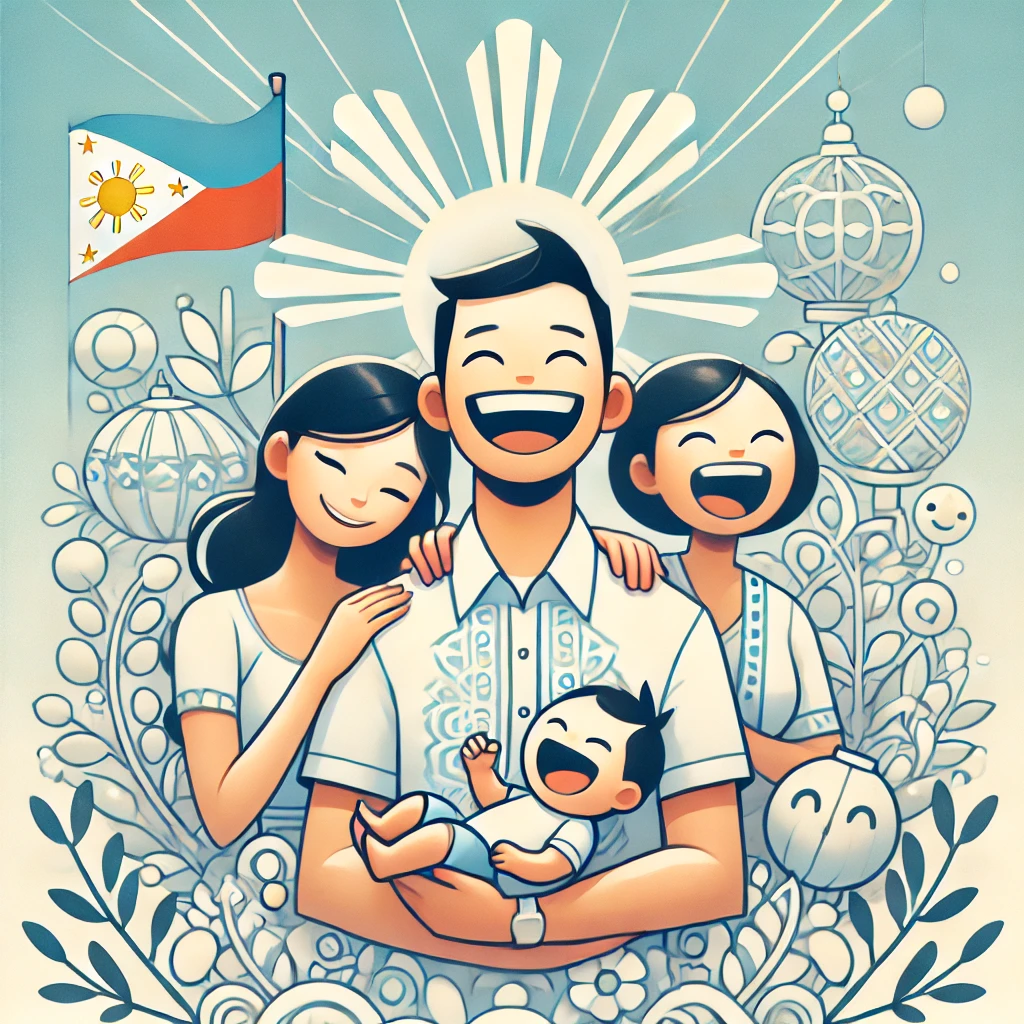Hey there, fellow joke enthusiasts! Are you ready to embark on a laughter-filled adventure through the world of Filipino humor? Buckle up, because we’re about to dive into some of the wittiest, most thought-provoking jokes that the Philippines has to offer. From clever wordplay to satirical social commentary, these jokes will not only tickle your funny bone but also give your brain a good workout. So, let’s get started and explore the unique blend of humor that makes Filipino jokes stand out in the global comedy scene.
The Art of Filipino Humor: More Than Just Punchlines
Filipino humor is like a delicious adobo – it’s a perfect blend of flavors that leaves you wanting more. But what makes it so special? Well, it’s not just about getting a quick laugh; it’s about making you think, reflect, and maybe even question your assumptions. Filipino jokes often incorporate elements of social commentary, cultural nuances, and linguistic gymnastics that set them apart from your average knock-knock joke.
The secret ingredients of Filipino humor:
- Wordplay and puns
- Cultural references
- Social commentary
- Self-deprecating humor
- Quick wit and improvisation
These elements combine to create jokes that are not only funny but also thought-provoking. They reflect the Filipino people’s ability to find humor in everyday situations, even in the face of adversity. It’s this unique perspective that makes Filipino jokes so engaging and memorable.
Wordplay Wonders: The Joy of Filipino Puns
Let’s kick things off with some classic Filipino wordplay. Filipinos have a knack for twisting words and phrases to create hilarious double meanings. These jokes often rely on the unique characteristics of the Filipino language, as well as the widespread use of English in the country.
Classic Filipino wordplay joke:
“Anong gagawin mo kapag binigyan ka ng bato?”
“Eh di, ‘bato-balani’ mo!”
Translation:
“What will you do if someone gives you a rock?”
“I’ll throw it back at them!”
The humor here lies in the double meaning of “bato,” which can mean both “rock” and “throw.” It’s a simple yet clever play on words that showcases the Filipino love for linguistic acrobatics.
But wordplay isn’t limited to just Filipino words. Many jokes incorporate English words as well, creating a unique bilingual humor that’s distinctly Filipino.
Bilingual wordplay joke:
“Anong tawag sa maliit na tornado?”
“Edi, small-nado!”
Translation:
“What do you call a small tornado?”
“A small-nado!”
This joke combines the English word “small” with the Filipino suffix “-nado” (from tornado), creating a playful bilingual pun that’s sure to elicit groans and chuckles in equal measure.
Cultural Comedy: Jokes That Reflect Filipino Life
Filipino jokes often draw inspiration from everyday life, cultural traditions, and shared experiences. These jokes resonate deeply with Filipinos and offer outsiders a glimpse into the unique aspects of Filipino culture.
A typical cultural joke:
“Bakit malungkot ang mga mangga sa puno?”
“Kasi hindi sila hinog mag-isa!”
Translation:
“Why are the mangoes on the tree sad?”
“Because they can’t ripen alone!”
This joke plays on the Filipino word “hinog,” which means “ripe,” but sounds similar to “hinог” (mature). It reflects the cultural importance of family and community in Filipino society, suggesting that even fruits need companionship to grow and mature.
These cultural jokes often touch on various aspects of Filipino life, from food and family to traditions and superstitions. They serve as a mirror to society, allowing Filipinos to laugh at themselves while also celebrating their unique cultural identity.
Social Satire: Jokes That Pack a Punch
Filipino humor isn’t afraid to tackle serious issues. Many jokes serve as vehicles for social commentary, addressing everything from politics and corruption to social inequalities and cultural quirks. These jokes allow Filipinos to confront difficult topics in a lighthearted way, often revealing deep truths about society.
A satirical joke about politics:
“Anong pagkakaiba ng pulitiko sa magnanakaw?”
“Ang magnanakaw, hindi tumatakbo!”
Translation:
“What’s the difference between a politician and a thief?”
“A thief doesn’t run (for office)!”
This joke plays on the double meaning of “tumatakbo,” which can mean both “to run” (physically) and “to run for office.” It cleverly critiques the perception of corruption in politics, suggesting that politicians are worse than thieves because they actively seek positions of power.
These satirical jokes serve an important purpose in Filipino society. They allow people to express frustration with social and political issues in a way that’s both cathartic and thought-provoking. By wrapping criticism in humor, these jokes can spark conversations and encourage reflection on important topics.
The Evolution of Filipino Humor: From Traditional to Digital
Filipino humor has come a long way from the days of street corner banter and family gatherings. With the rise of social media and digital platforms, Filipino jokes have found new avenues for expression and a wider audience than ever before.
The digital transformation of Filipino humor:
- Memes and viral content
- Stand-up comedy specials
- YouTube skits and vlogs
- Twitter and Facebook joke pages
- TikTok challenges and trends
This digital revolution has allowed Filipino humor to reach a global audience, showcasing the wit and creativity of Pinoy comedians to the world. It’s also given rise to new forms of humor that blend traditional Filipino jokes with contemporary internet culture.
Let’s take a look at some data on the growth of Filipino humor in the digital space:
| Platform | Number of Filipino Comedy Channels/Pages (2018) | Average Engagement Rate |
|---|---|---|
| YouTube | 500+ | 8.2% |
| 1000+ | 6.5% | |
| 750+ | 4.3% | |
| 300+ | 5.7% |
(Note: Data is approximate and based on available information up to 2018)
This data shows the significant presence of Filipino humor across various digital platforms, with YouTube and Facebook leading the pack in terms of comedy content and engagement.
The Universal Appeal of Filipino Jokes
While many Filipino jokes rely on cultural context and linguistic nuances, there’s something universally appealing about the humor that transcends borders. The clever wordplay, relatable situations, and underlying warmth of Filipino jokes have gained fans around the world.
What makes Filipino jokes globally appealing:
- Relatable themes (family, work, relationships)
- Clever use of language and wordplay
- Ability to find humor in everyday situations
- Blend of self-deprecation and pride
- Underlying positivity and resilience
These qualities have helped Filipino comedians gain international recognition and have even influenced humor in other countries. The unique perspective offered by Filipino jokes provides a fresh take on common experiences, making them accessible and enjoyable for people from all walks of life.
Laughter is the Best Medicine, Filipino Style
As we wrap up our journey through the world of witty Filipino jokes, it’s clear that there’s more to these punchlines than meets the eye. Filipino humor is a complex tapestry woven from cultural experiences, linguistic creativity, and a dash of social commentary. It’s a testament to the Filipino spirit – resilient, clever, and always ready with a smile and a laugh.
So, the next time you hear a Filipino joke, take a moment to appreciate the layers of meaning behind the laughter. Who knows? You might just find yourself looking at the world a little differently, with a newfound appreciation for the power of humor to bridge cultures, spark conversations, and make us think.
And remember, as the Filipinos say, “Tawa lang ng tawa, para humaba ang buhay!” (Keep on laughing to live longer!) So go ahead, share a joke, spread some laughter, and maybe even try your hand at crafting your own witty Filipino-style punchline. After all, in a world that can sometimes feel a bit too serious, we could all use a good laugh – and maybe a little food for thought, too.
Disclaimer: This blog post is intended for entertainment purposes only. While we strive for accuracy in our representation of Filipino humor and culture, some jokes may be subject to interpretation or may have evolved over time. We encourage readers to approach the content with an open mind and a sense of humor. If you notice any inaccuracies or have suggestions for improvement, please let us know so we can update our information promptly.




